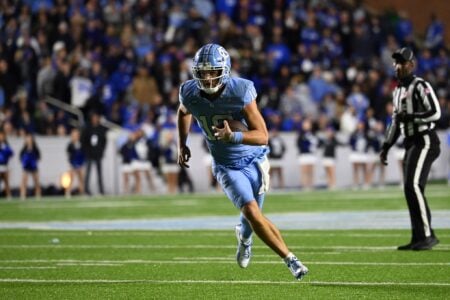manxman2601
PatsFans.com Retired Jersey Club
- Joined
- Mar 21, 2011
- Messages
- 30,077
- Reaction score
- 25,532
I really would like the NFL to go with a 53 man active roster on gamedays. I think it would impact the DL position most. Would allow you dress 8-9 and rotate them. Maybe, have a kid who's not an ideal scheme fit for you on your roster. Because, he can get after the qb. One rule change to help defenses wouldn't hurt, would it??
I don't understand why you'd have players on your roster that you can't dress. But then there's a bunch of NFL rules I don't understand; compensatory picks chief among them.


















